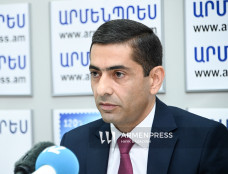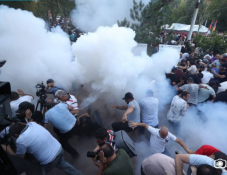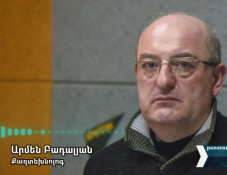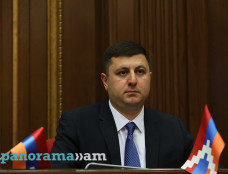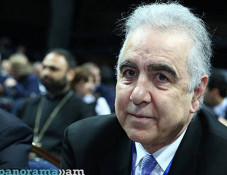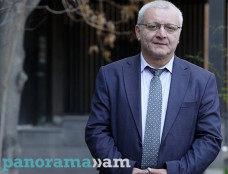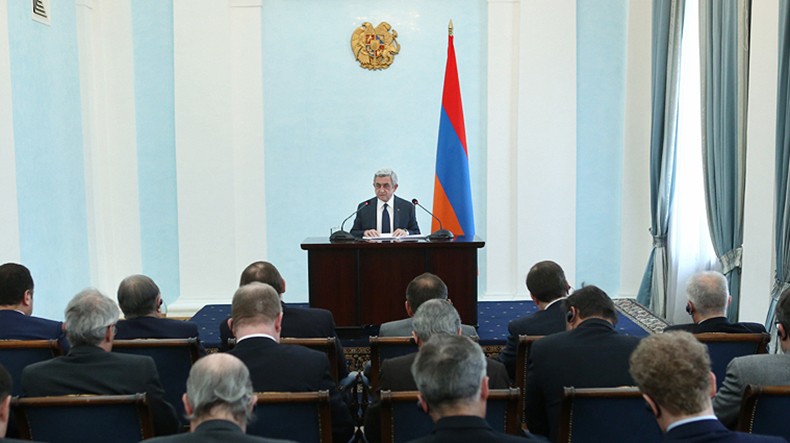
Continuation of armed hostilities by Azerbaijan will result in “unpredictable and irrevocable” effects on the ground. Serzh Sargsyan
“After declaring the so-called “unilateral ceasefire”, Azerbaijan has employed its artillery to shell the civilian inhabited areas of Nagorno Karabakh. Republic of Armenia is a party to the trilateral ceasefire agreement of 1994 and is [determined] to continue fully implementing its responsibility to protect the people of Nagorno Karabakh. Moreover, I have also instructed the Ministry of Foreign Affairs to work out bilateral treaty with Nagorno Karabakh about mutual military assistance. Should the armed hostilities continue and become larger scale, the Republic of Armenia will recognize the independence of Nagorno Karabakh”, - said President of Armenia Serzh Sargsyan in an emergency meeting with the ambassadors of the OSCE Member-States in Armenia, held today, April 4 around 1:00PM Yerevan time.
According to the press statement from the Office of the President, Serzh Sargsyan added that the continuation of armed attacks by Azerbaijan will result in “unpredictable and irrevocable” effects on the ground and affect peace and security well beyond the region of South Caucasus alone.
Sargsyan also added, that Armenia and Nagorno Karabakh are in favor of halting the armed hostilities and strictly observing the 1994 ceasefire regime, provided all military units return to the areas of their previous positions as of April 1, 2016.
“In order to maintain the ceasefire, the OSCE shall come up with stabilizing measures, including the introduction of ceasefire violations investigation mechanism and a more robust monitoring mandate for the Personal Representative of the Chairman-in-Office of the OSCE”, - Serzh Sargsyan said in his statement.
The UN Security Council adopted four resolutions between April and November, 1993, calling for “effective and permanent” ceasefire, as well as “immediate implementation of the reciprocal and urgent steps” in that direction.
Peace talks between Armenia, Nagorno Karabakh and Azerbaijan have been facilitated by the Organisation for Security and Cooperation in Europe since March 1992 within the frameworks of so-called Minsk Group, co-Chaired by Russia, United States and France since mid-1990s.
Ceasefire agreement between Armenia, Nagorno Karabakh and Azerbaijan, facilitated by Russia's representative to the CSCE/OSCE Minsk Group Vladimir Kazimirov, was signed on May 5, 1994, which had been maintained with only sporadic violations along the Line of Contact and international border till the latest Azerbaijani large scale offensive in the night of April 2, 2016.
Over the last two years Armenia, Nagorno Karabakh, the OSCE Minsk Group co-Chairs and over 80 U.S. Congressmen proposed (Royce-Engel bill) concrete measures to de-escalate situation and establish ceasefire monitoring equipments along the borders. Azerbaijan has been repeatedly rejecting these calls.
Related news
Newsfeed
Videos





